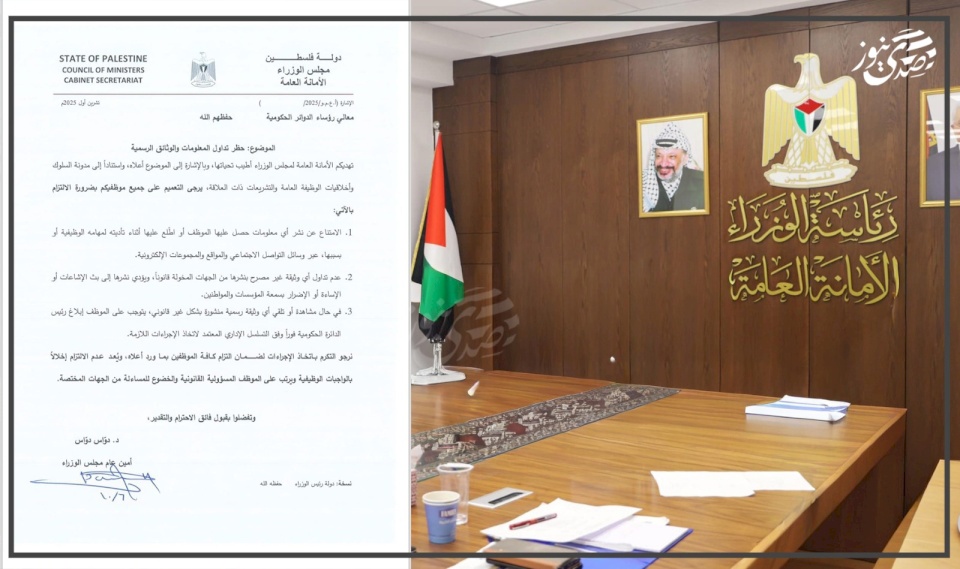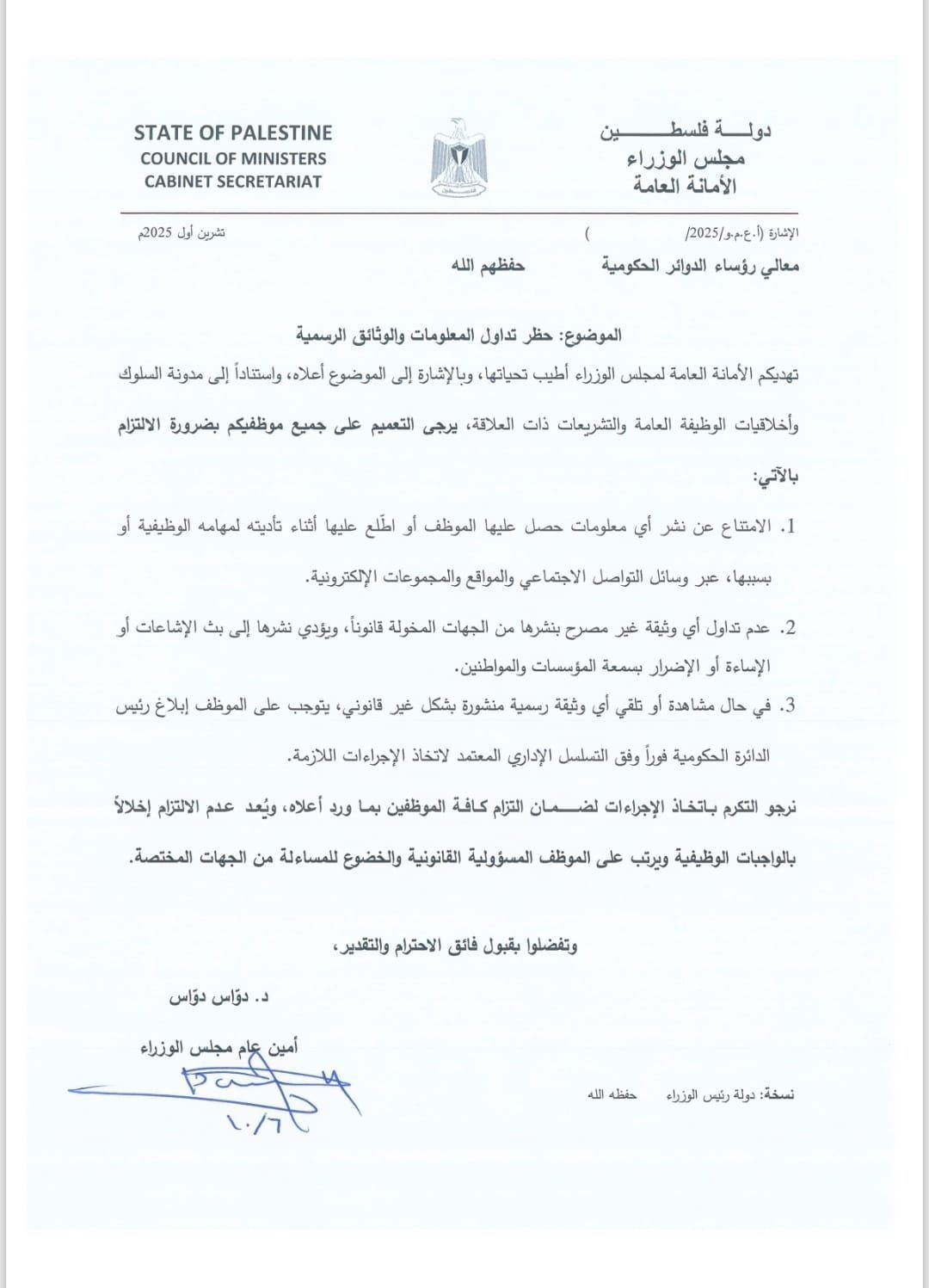
Leak of a Book Banning Leaks.. A Paradox Revealing the Absence of Transparency in Palestine
Special to SadaNews: The debate in the Palestinian street has intensified following the leak of an official book issued by the Secretary-General of the Palestinian Cabinet, which prohibits the circulation of government documents and information. Ironically, this book, which was intended to prevent leaks, itself became one of the most notable leaks, turning into a topic of public discussion and igniting waves of questions about the limits of transparency and the citizens' right to know.
This coincided with the recent dismissal of prominent figures from their positions, such as former Palestinian Minister of Transportation Tareq Zahrab and the head of the Palestinian Border and Crossings Authority Nazmi Muhanna, who had held his position for many years, amidst talks of corruption issues, without any official clarification regarding the reasons or backgrounds of the decisions. This has opened the door to interpretations and speculations and has brought back to the forefront a long-awaited file: (The Law on the Right to Access Information), which has been pending for over 20 years, despite widespread societal consensus on its necessity.
These developments have deepened the feeling of the need for legislative reforms that guarantee clarity and accountability, and put an end to the policies of secrecy that are increasingly met with public and media rejection.
In the absence of transparency, the official Palestinian authorities have only announced the appointment of replacements for those removed from their positions, without providing any details about the reasons for the dismissals or the nature of the cases they were involved in. This ambiguity has driven media outlets to rely on unofficial sources that revealed leaked documents related to sensitive files, sparking a wave of public and media controversy.
These events have reopened the file of the Right to Access Information law, which has been discussed since 2005 and has faced a series of delays and obstructions since then, despite broad societal consensus on it. Although civil society organizations have attempted to push for its approval, the project has remained suspended, amid a lack of political will and the fear of some parties regarding the repercussions of disclosure.
Observers believe that the absence of a legislative council and the reliance of the executive authority on the legislative tool has contributed to the delay in issuing the law, along with the culture of secrecy that dominates some decision-making circles, which view transparency as a threat to their interests rather than a tool to enhance trust and accountability.
What the Palestinian scene is witnessing today in terms of leaks and official secrecy does not only reflect a management crisis but reveals a deep gap between the citizen and its institutions. It confirms that the approval of the Right to Access Information law is no longer an elitist demand but a national necessity to ensure integrity, enhance trust, and empower society to exercise its supervisory role in building the rule of law that everyone is demanding.


High-level sources reveal to SadaNews: Washington seeks to hold a Gaza Reconstruction Conf...

The Israeli Army Reveals Data for 2025 in the West Bank

Smotrich Calls for Cancellation of Trump's Plan and the Dismantling of the "Kiryat Gat" He...

Fatah Announces the Date of Its Eighth Conference in May Amid Organizational Concerns and...

Israel believes Kushner is "retaliating" against it by forming the executive committee to...

Report.. Trump Administration Moves Forward with Gaza Plan Despite Netanyahu's Objection

Two Prominent Wealth Owners in the Gaza Council.. Get to Know Them

